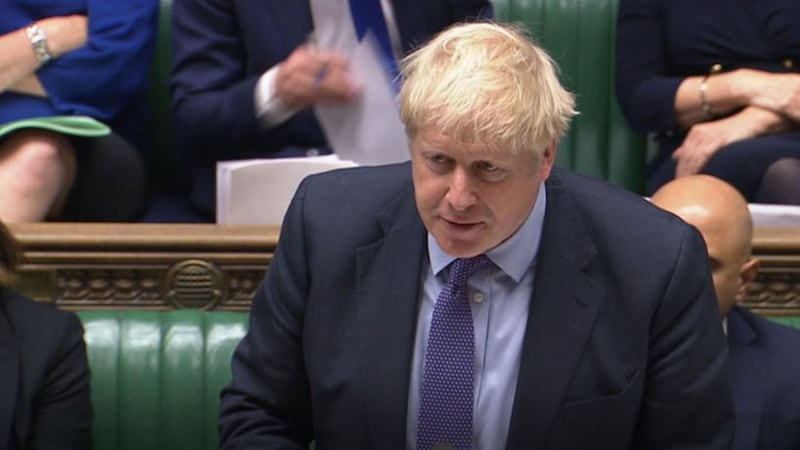Problems are emerging with the proposed sea border, to put it mildly.
Companies face the cost and inconvenience of making declarations on goods travelling in both directions between Northern Ireland and Britain.
There will also be regulatory checks from east to west. This has major economic as well as political implications but it will just have to be sorted out.
If the current proposals do not pass, something like them will be straight back on the agenda. A sea border is the only solution to Brexit, as has been obvious from the start. Its problems have been equally apparent - they are essentially the administrative burdens highlighted for a post-Brexit land border, funnelled through a few pinch-points at Larne, Belfast, Warrenpoint and Aldergrove.
In October last year, European Commission chief negotiator Michel Barnier said it was time to “de-dramatise” a sea border, citing the Canary Islands, which are fully part of Spain yet outside the EU’s VAT and customs areas.
Barnier’s statement should have received more attention. It was a rare admission that the EU’s supposedly sacred rules are applied ad hoc around its frontier.
Unionists and the government should have pressed that point home. At the very least, they could have looked at the Canaries to see what was down the mine. The islands’ unique arrangements appeared to work well for decades but once online shopping brought the costs and impacts directly to the notice of consumers, through higher prices and the unavailability of certain goods, the issue became contentious and exacerbated a form of unionist versus nationalist split in the regional parliament.
The lesson for Northern Ireland, petty as it might seem, is that not antagonising shoppers should be the top de-dramatising priority. If cost, inconvenience and mitigation can be contained within a closed loop before goods hit shelves and doorsteps, a sea border will still be far from frictionless but it has a chance of remaining politically invisible.
The ‘alternative arrangements’ Brexiteers have explored for the land border are primarily about addressing security and smuggling, by swapping physical infrastructure for paperwork, exemptions and on-site inspections. There was little pretence this would not mean a bureaucratic border. The much-promoted Authorised Economic Operator exemption, for instance, does not prevent declarations having to be made.
This is somewhat beside the point in mitigating a sea border, which addresses smuggling and security by being at ports and airports.
Where the work on alternative arrangements has been useful is in teasing out the costs and extracting promises of compensation.
Relatively small sums have been pledged to help UK businesses cope with the administrative overheads of Brexit, although the government will not commit to permanently offsetting a bill estimated at £15 billion a year. But there has been more talk of reimbursing cross-border traders in Northern Ireland on a full and ongoing basis.
This needs to be turned around and applied to a sea border. Official estimates put the administrative cost of a shipment from Britain to Northern Ireland at between £15 and £56. No estimate has been attempted for goods moving in the opposite direction but it will not be zero. The burden will fall most heavily on smaller firms, the backbone of Northern Ireland’s economy, as they cannot reduce it through volume and may have not find it practical to use freight forwarders.
Political and lobbying efforts should concentrate on creating a reimbursement scheme for cross-channel trade. It will need to be simple to use, which is where all the many promises made about technology come into play. It will also have to be fast, so that small businesses to not suffer cash-flow problems while withholding costs from consumers.
There is a strong case for such a scheme to be funded jointly by the British and Irish governments and the EU, as it is the EU’s frontier and Ireland’s security that are being protected at the Irish Sea.
The DUP should be pressing for that instead of raging at the inevitable. Then it should argue throughout the transition period for the softest of Brexits, so that the need for paperwork and inspections at a sea border never arises.
Alas, with the DUP again rejecting EU customs union membership for the UK this week, it looks like that ship has sailed.









